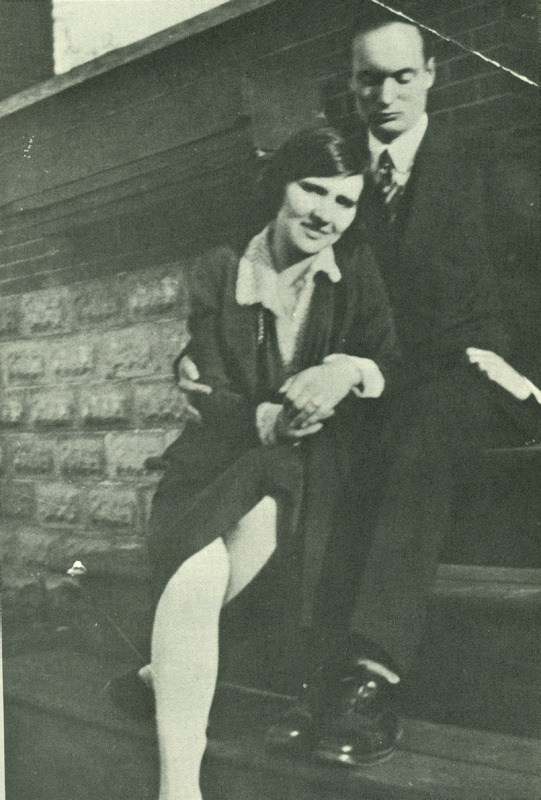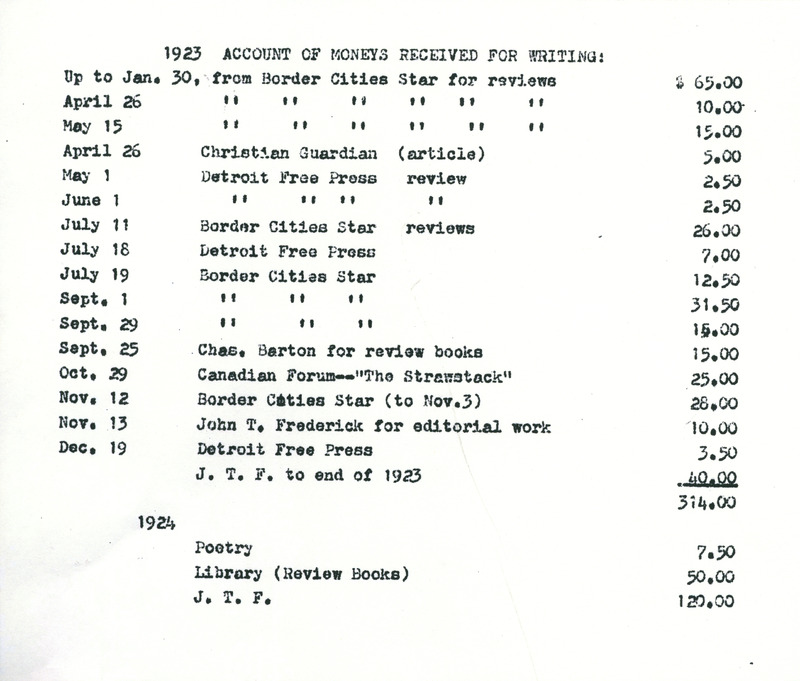His life
By Suzanne Matheson
Raymond Knister, born in Ruscom in 1899, is an Essex county writer by birth and inclination. Knister’s disciplined, imagistic verses chronicle the harshness, toil and sudden shafts of beauty that illuminate rural life. In two collections of poetry arranged before his death, “Grass Plaitings” and “Windfalls for Cider”, Knister vividly evokes the struggle, small joys and rhythms of farming in the early part of the last century. The relationship between men and animals, the fate of bodies in thrall to the land, the chequered closeness of rural communities, figure in his poems and in many of his sharply observed and tenderly written short stories. “Birds and flowers and dreams are [as] real as sweating men and swilling pigs”, Knister would later write, “But the feeling about them is not always so real, any more, when it gets into words. Because of that, it would be good just to place them before the reader, just let the reader picture them with the utmost economy and clearness, and let him be moved in the measure that he is moved by little things and great”.
Knister read voraciously as a youth (a ledger in the archives at McMaster lists over a thousand books he consumed between age 15 and 25) and began writing in his late teens. He briefly attended Victoria College, University of Toronto, before a severe bout of pneumonia forced his return to the farm. Knister’s early career typifies both the state of Canadian letters in the early 1920s and the perennial difficulties of establishing a literary career. His creative work was supported by journalism, including a weekly book review column of the Border Cities Star (forerunner of the Windsor Star) and reviews for the Detroit Free Press. His 1923 accounts show that he earned $314.00 through his work — as compared to the $7.50 his poetry garnered in 1924. Between 1923 and 1926 Knister lived in Iowa, working with editor John T. Frederick on the influential literary journal called The Midland.
He returned to freelance work in Canada, and over the next 10 years published verse and stories steadily in Canada, the U.S., and Paris. Knister’s circle of friends and correspondents included luminaries such as Charles G.D. Roberts, Morley Callaghan, and Dorothy Livesay. His first novel, White Narcissus, a work of rural realism set in Ontario, was published in 1929. In 1931 Knister’s fictionalized account of the life and death of John Keats, My Star Predominant, won a $2500 first prize in a novel contest sponsored by the Graphic Publishers — although the Graphic’s bankruptcy deprived Knister of the full prize monies. In 1932, with his literary powers peaking and the promise of financial security through a new job at Ryerson Press, Knister drowned while swimming off Stoney Point. He was 33.
Over seventy years have passed since the untimely death of one of Canada’s most promising young writers. With our changing sense of what writing this nation means, and the recent emergence of new manuscript material, the time is ripe to examine a man regarded as one of Canada’s first modern poets.
An adventurous young man, and an ambitious and dedicated author, he published his work in important journals of the day, even spent a season driving a taxi in Al Capone’s Chicago, and he wrote and wrote and wrote. His prize-winning novel, My Star Predominant, though long out of print, remains a much-admired and fascinating fictional portrait of Romantic poet, John Keats.
For his part, contemporary Canadian poet and playwright, James Reaney, praises Windfalls for Cider, the posthumously published single volume of Knister’s poetry with these words, “May the mysterious and magic place that Raymond Knister’s orchard is from, now be continually open to adventurous readers.” Many critics refer to Knister, who wrote all his published poems while in his early twenties, as the first modern Canadian poet. Knister had already abandoned the writing of poetry six years before his untimely death. To quote his daughter, Imogen, “Perhaps he would have laughed at those who referred to him as a poet. He considered himself an author and he made his living as a writer.”


